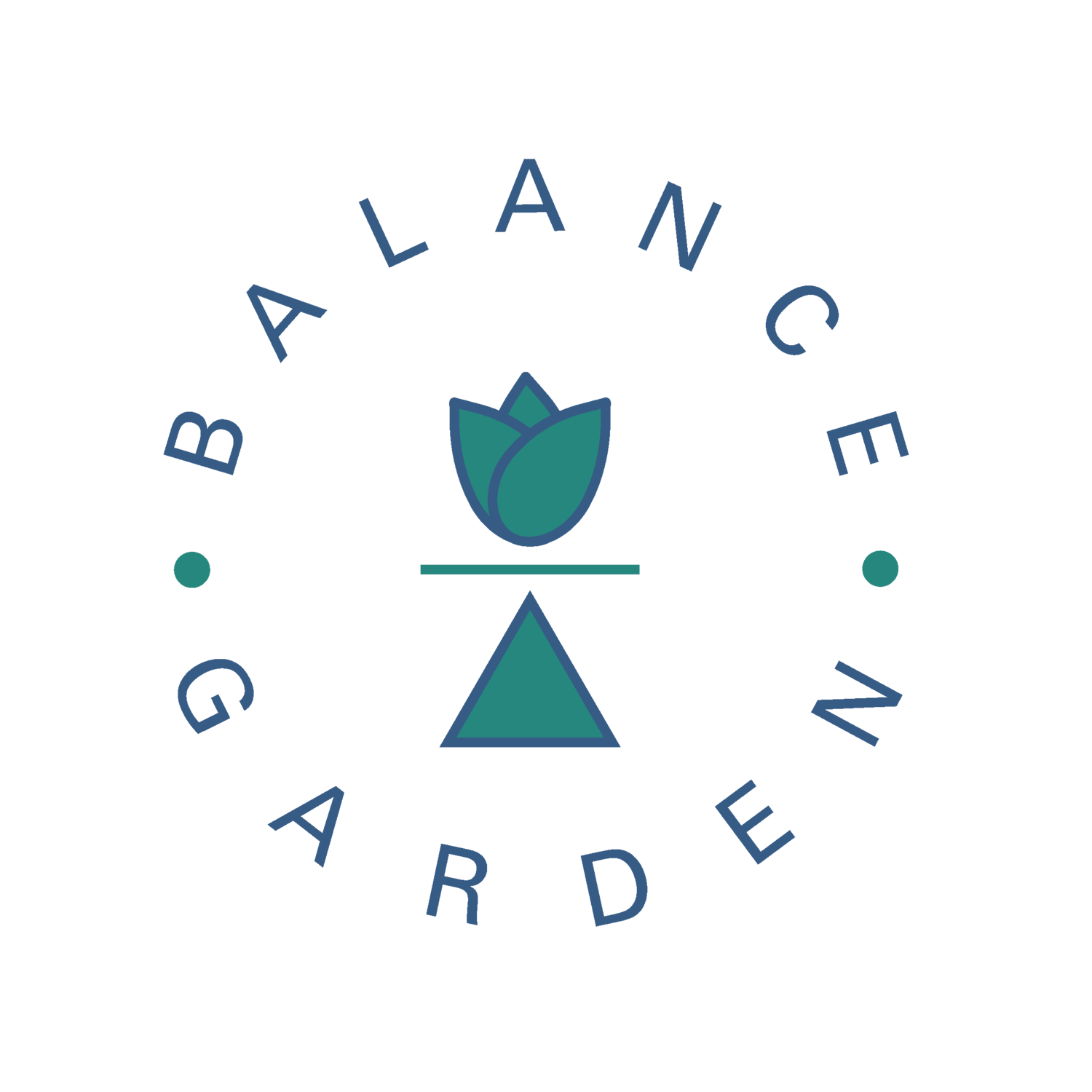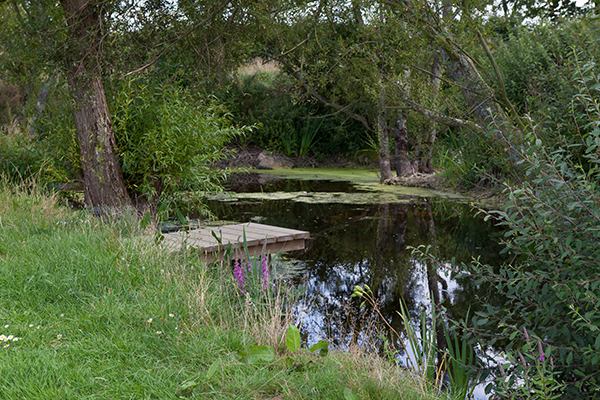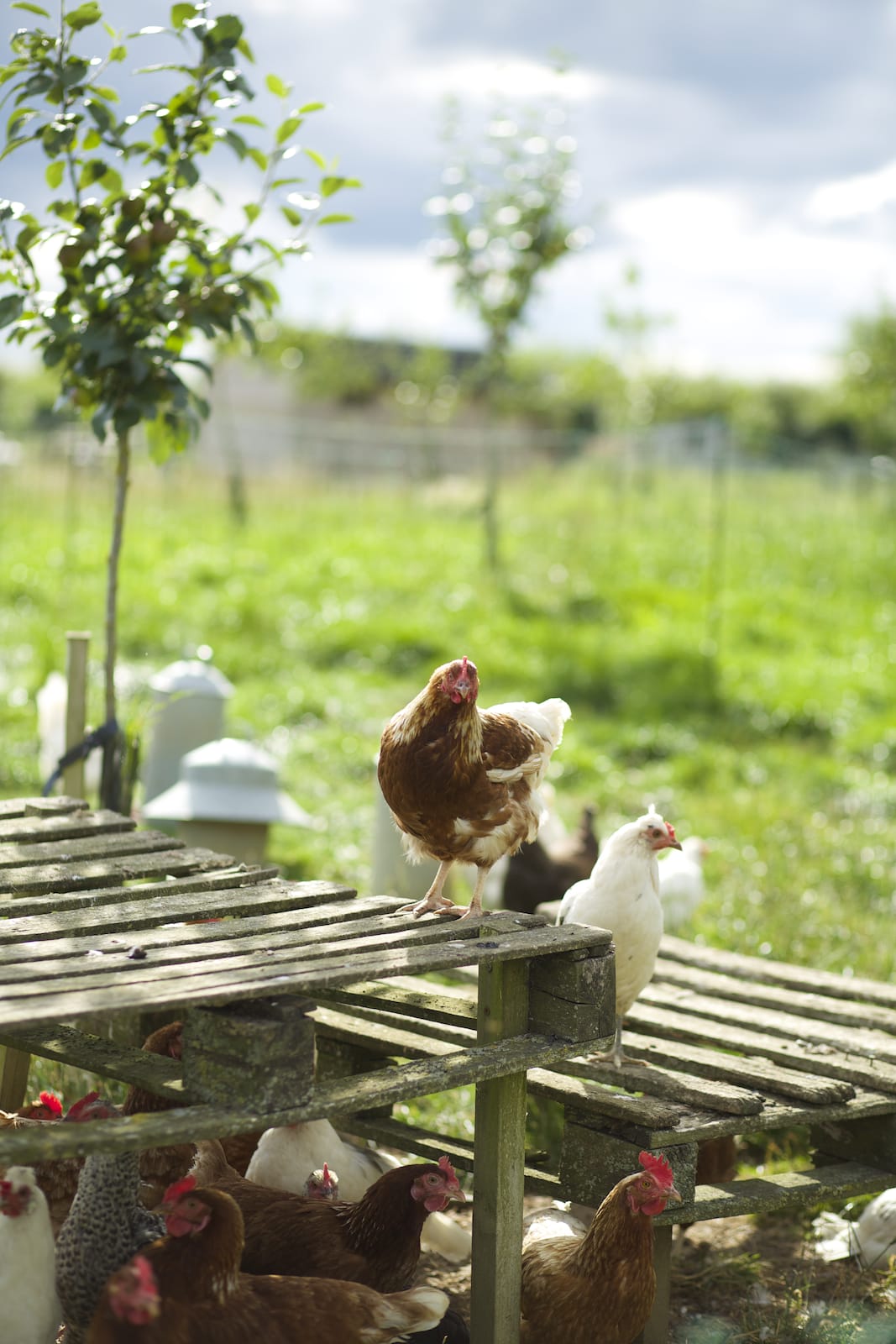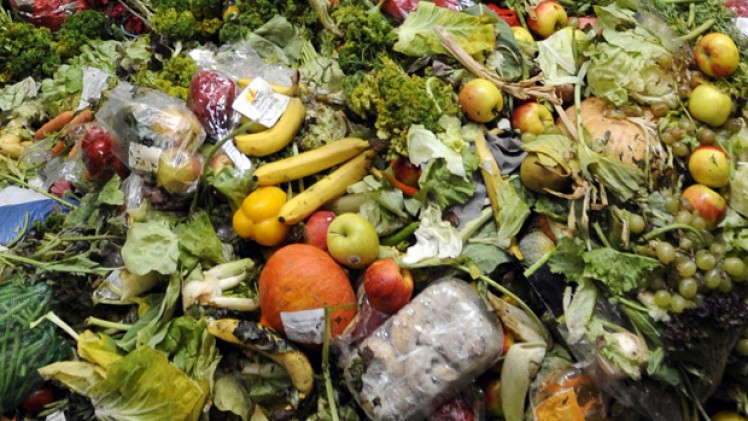Why You Need to Care About Organic
/It’s estimated that the soil we grow our food in only has 100 harvests left before it is so nutritionally void, that it’s no longer able to support the natural growth of crops. This means that within 60-100 years we are looking at a situation in which our food supply is drastically compromised.
What’s causing this situation and how does it affect me?
We live in a time in which our global population is increasing, on the whole we have more disposable income, and the mantra for life on this earth seems to be "more/bigger/better/cheaper/faster/now!" As we hurtle through life, spurned on by the vast leaps in technology and scientific exploration, our systems for sustaining the inhabitants of mother earth have undergone huge changes. Whereas food used to be produced locally, seasonally, and fairly slowly - we now have a system of agriculture whose aim is to produce the most food for the least money in the fastest timeframe. Say hello to intensive farming.
In order for our land to produce the large, fast yields that we are demanding from it, several human interventions need to be made, because the natural order of things simply doesn’t support that speed or volume. Commercial fields are routinely sprayed with fertilisers such as synthetic nitrogen which encourages the thick and fast growth of crops such as wheat, barley and corn. “What a wonderful invention” I can hear you thinking, “thank goodness we have found a way to feed the world by maximising our harvests.” Not so fast now... While these increased yields and lower prices may seem like the modern capitalist’s dream come true, it’s this intensive use of synthetic fertiliser (amongst other contributing factors) that is responsible for the worrying prediction about our remaining harvesting years and other environmental concerns.
What’s the problem with artificial fertilisers such as synthetic nitrogen?
Synthetic nitrogen-rich fertiliser does not stay conveniently within the confines of the fields and farms that it’s sprayed on. It is blown by the winds, washed by the rain, carried on paws, in beaks, and spindly little legs way beyond the areas it was intended for - into the surrounding landscapes - and inevitably into our rivers and waterways. When it reaches our waterways it rapidly deoxygenates the water, resulting in the ominously named “dead zones” and causing fish to die in their millions.
Not only does this mean less fish for fish-eating humans - it also means less fish for the other creatures we share our planet with, which has devastating effects on the food chain and is directly contributing to the extinction of more and more species. All it takes is one element of any given system to be compromised, to result in exponential consequences for the rest of that system, as we begin to lose the diversity of species necessary for a healthy functioning planet.
You can’t pour from an empty cup/you can’t grow in empty soil
Fertilising the soil with nitrogen is, albeit an arguably successful one, a very short term solution. It allows us to plant quick-growing crop after quick-growing crop, with no time allocated for the soil to recover or to replenish the diversity and richness of nutrients necessary for healthy land and sustainable food production.
A commercial non-organic farming framework does not give land the time it needs to regenerate. Whereas organic land is fed with green manure, and crops are rotated to ensure that no one nutrient is depleted from the soil, and there’s the chance for worms, beetles, bugs, rabbits, hares, hedgehogs, birds to traverse it, eat it, poo it back out again, die on it, decompose into it - all of which results in a rich environment for growing stuff, our food - intensive farming methods just do not support this cycle of regeneration. Artificial fertiliser replaces natural fertilisation methods, resulting in the whole cycle being sped up to unrecognisable and unsustainable levels.
The more we ask our soil to produce, and the less time and care we put into helping it to recover, the more nutritionally depleted it becomes resulting in an increased reliance on artificial fertilisers to continue meeting the demands we make on it. We have trapped ourselves in a cycle of nitrogen dependency. In order to grow more food, we need more fertiliser – but the more fertiliser we use, the more depleted our soil becomes.
Herbicides and Pesticides
Intensive farming methods bring another issue alongside soil degradation to the table. These fast-growing crops are very susceptible to disease due to their accelerated growth process and reduced genetic pool. Whereas heritage wheat that was allowed to mature properly would have some natural resistance to moulds, mildews, and ‘pests’, these more vulnerable crops need treating routinely with herbicides and pesticides to ensure the greatest yield and the least loss to diseases that they are not strong enough to withstand.
The chemicals used to the deter ‘damaging’ moulds and pests, however, do not have the power of discernment and destroy all bugs, bees, insects, healthy bacteria, and moulds that they come into contact with, literally wiping the biodiversity from our landscapes. This is having a devastating effect on our major pollinators such as bees, whose numbers have dropped to alarming levels in recent years. Bees are responsible for the pollination of three-quarters of all crops; without them, the future of our food is drastically compromised.
Sounds like a nightmare. What’s the alternative?
I caught up with Tom Mettyear of Angel Cottage Organics, a passionate advocate for the organic movement, and asked him to explain how organic farming methods are absolutely integral in beginning to address soil and species crisis that we are facing.
Can you explain a bit about organic farming and why its so important?
“An organic system is about looking after the soil, which is the basis of sustaining life on earth. My passion lies with the diversity and longevity of that system. Many people think that buying organic food is about choosing to buy food that is better for your health – which it is to some extent – but I’m far more interested in the fact that organic farming is essential for the health of the planet. If you are concerned about the state of the earth and sustainability, then you need to care about organic farming.”
At Angel Cottage Organics, the Soil Association certified farm that Tom runs with his partner Mark, the focus is on maintaining the health of the soil and the biodiversity of the planet. Chickens wander freely among the apple trees, pecking at worms, fallen apples, and grubs - in turn feeding the soil and the orchard with their waste. The apple trees thrive and produce delicious fruit for apple juice and cider. The fields are nourished by the grazing animals who feed on the nutritionally rich and diverse land and in turn feed the land with their green manure. Any additional feed needed for the animals is organically produced, meaning that wherever it was grown, care has been taken to ensure the least environmental damage possible.
Weeds are removed by hand or machinery rather than by blanket spraying the fields with pesticides and herbicides. As a result, wildflowers bloom in abundance, hedgerow herbs are readily forage-able for salads and teas, and there are bees, birds, beetles, and butterflies in abundance.
For Tom and Mark, farming organically is really about supporting natural systems to thrive, so that our food production remains sustainable for all. “We inhabit the planet as a mammal and part of our responsibility as an intelligent and developed species is to not coerce nature in order to benefit us as a species.”
Cost
Organic food is undeniably more expensive. The hand weeding, the smaller crop yields (not excessively inflated with synthetic fertilisers, and sometimes damaged by natural disease), the care and attention that is invested into organic growing systems all contribute to the comparatively higher price tag that we see on our supermarket shelves.
As consumers, the price can make us baulk. However, when I raise this issue with Tom, he reminds me that food is a precious resource that has a value. “Somebody grew that” he states, “somebody took time and energy and love, and chopped it and sowed it and harvested it - it’s worth something."
Our shopping habits have changed drastically as industrially produced food (which is cash cheap but environmentally extortionate) has flooded the market. We’ve become accustomed to spending less and less of our income on our sustenance - and more on entertainment, travel, and new clothes/phones/laptops. That may all seem very enjoyable, however, if we truly care about the planet, the species that we share it with, and doing something to contribute positively to our environment, then maybe it’s time to begin to reassess our priorities and recognise that how we choose to spend our money has a direct impact on the world around us.
In the same way that conscious shoppers may choose not to spend money in clothes shops that use slave labour, recognising that someone somewhere is paying for that reduced price tag, we also need to recognise that cheap food has an environmental cost, which in turn is costing us our species and our natural environment. When we choose a non-organic brand over an organic brand, we are quietly and often unknowingly voting with our wallets for the continued abuse of our land and its devastating effect on our planet and the people that inhabit it.
Can everyone afford organic food?
“No.” Tom says categorically, “We live in a terrible system that is built on inequality and that undoubtedly needs to change before we can even consider organic food being a realistic option for many people. But while we continue to push, campaign, and speak up about the need for change – we also need to hold alongside that extremely important issue the matter of organic food production until everyone CAN afford it. We shouldn’t not be talking about organic because people can’t afford it. We should be talking about it ALL the time, setting it as the marker of a successful political-economic system. We need to resituate ourselves as part of this world and make choices that don’t just benefit us on a personal level.”
Can organic food feed the world?
“That’s a difficult one. I’m sure people would disagree with me when I say yes- but yes! However, our attitude to food would have to change drastically. For instance, we would need to not throw away 4.4 tonnes of food away every year in the UK alone.”
On their campsite, Tom tells me, they regularly find unopened cans and packets of food just dumped by people who can’t be bothered to take them home or deal with them after their trip. Supermarkets are renowned for destroying edible food, and my time spent working in the hospitality industry has shown me first hand the sickeningly cavalier attitude to food waste where I often had to dispose of large quantities of cooked food (sometimes over 250 portions).
People have lost touch with the reality of food; rejecting misshapen fruit and veg, and blindly relying on sell-by and use-by dates when simply tasting or smelling the majority of foods is a perfectly reasonable way to work out if they are still good and avoid throwing them out unnecessarily.
Aside from wasting so much of the food we do have, “we would also need to eat as seasonally and locally as possible, storing the glut of the summer harvest to see us through the winter months and not rely on international imports as heavily” adds Tom, “and we would need to rethink what we are willing to spend and what we are willing to give up to meet that budget.”
So can organic feed the world? The debate rages on, but there are certainly other aspects of food production and consumption that need to be addressed before we can even consider discrediting it as a viable solution.
Up until now, the majority of the conversation about organic food in my personal social circles has seemed to revolve around individual health concerns and whether or not the nutritional benefits of organic food justify its inflated price tag. I’ve always felt that living in London and breathing in dangerously polluted air all day everyday kind of negates the need to get uptight about traces of chemicals lurking on my food – as I’m sure I’m ingesting worse just by breathing.
However, when the point is driven home that organic food production is not about the individual but about the planet as a whole, then the motivation for supporting it becomes a lot more convincing to me.
If organic farming is about protecting our earth and the species that we share the planet with, and about the world that we are choosing to leave our children then as a conscious consumer I feel that I have no option but to be interested and supportive of the movement. As concerns about disposable plastics soar, as more and more people turn to veganism as a move towards greater sustainability, as we become generally more interested and conscious about our impact on the world - the argument for buying organic simply cannot be left out of the equation.
As a parting note, Tom refers sadly to the complete lack of interest by the press about these undeniably important issues:
"They will talk about climate change and the environmental impact of meat production, but the importance of organic food production and it’s impact on our environment doesn’t seem to get a look-in in the media."
We speculate briefly about why this might be, but it seems pointless to go down a conspiracy rabbit hole about who or what might not want this important issue talked about, and instead choose to focus on getting the information out as best we can and hopefully get people talking about it more. It's certainly true, however, that you rarely see discussions about organic farming offering a solution to some of our environmental problems in mainstream media. Hopefully, that will change with the tide of conscious consumers on the turn for the better.
Where to start with organic?
If you're interested in learning more about natural ways of working with the land, you might be interested in one of Angel Cottage Organic's courses/events, retreats where you can go and stay on the farm and see and learn about the natural cycles at work for yourself, perhaps combined with some yoga or painting (both courses and retreats that they currently offer) and always accompanied by exquisite home-cooked food (vegetarian and vegan options aplenty). If you are interested in their products then you can find out more about where it's available here
Sign up to an organic veg box such as Riverford or Abel and Cole
Consider switching to using organic beauty products and toiletries (check out our handy guide here)
Recently on Balance Garden









































Blogcast for Balance Garden podcast episode 12 - ‘Still Light’